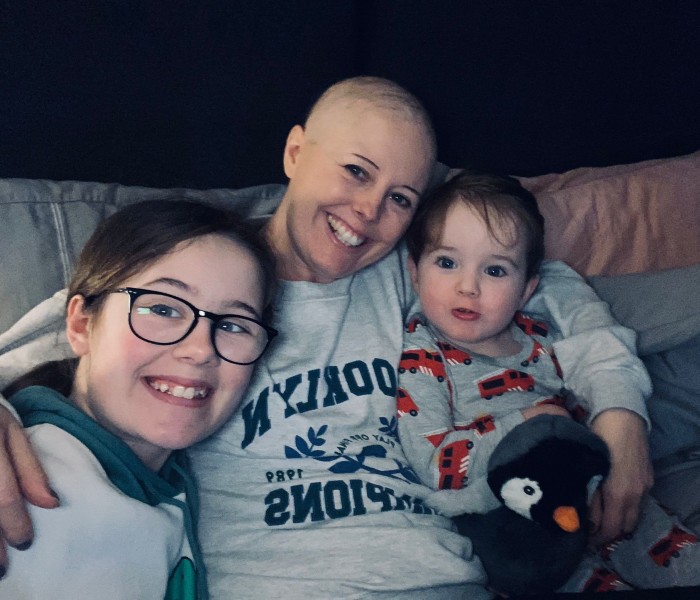University of Stirling health experts are to study the success of a new Cancer Research UK-funded scheme which aims to reduce cancer diagnosis waiting times in Scotland.
The projects based in NHS Forth Valley and NHS Fife, are part of a new programme called Test, Evidence, Transition (TET), which hope to enable patients to access treatment more quickly - providing the best chance of tackling the disease successfully.
The TET pilot schemes in NHS Forth Valley will see patients who contact their GP after finding a lump in their breast, referred directly to a breast assessment clinic without the need for an initial GP appointment and subsequent wait for a referral appointment.
The aim is to free up GP time, improve the patient experience and prevent delays in diagnosis which is crucial in tackling the disease when it is most treatable.
Meanwhile, in NHS Fife, the project will see advanced specialist nurses leading the diagnostic process for those with prostate cancer symptoms to allow consultants to focus on more complex cases.
Once patients are referred to the specialist team, they will then be in the care of a dedicated nurse-led team and patient navigators who will assess patients, arrange scans, book biopsies and refer patients quickly to a cancer care team for treatment where necessary.
Cancer waiting times in Scotland are currently amongst the worst on record. In April-June 2023, only 73.7 per cent of patients on an urgent referral for a suspicion of cancer started treatment within 62 days. This is well below the 95 per cent standard and is the third worst performance on record since 2012.
Dr Erica Gadsby, of the University of Stirling’s Faculty of Health Sciences and Sport, and lead on the project, said: “In NHS Forth Valley, we hope this new patient pathway will remove the need for that initial GP appointment, therefore freeing up valuable GP time, reducing inconvenience to the patient and speeding up the referral to the breast clinic.
“Currently, the prostate diagnosis pathway is one of the more complex ones and patients are experiencing delays. By using consultant time in the most effective way, we hope to be able to reduce waiting times at the treatment end.
“This nurse-led approach is used in other NHS health boards but hasn’t yet been fully evaluated. By collecting data and feedback, we will be looking closely at the impact of the new pathways on waiting times, patient experience and also on health inequalities.”
Current diagnosis pathway is complex
Currently in Forth Valley, people who find a breast lump are asked to contact their GP for an initial appointment who will then decide whether to refer the patient to a specialist breast clinic at Forth Valley Royal Hospital, Larbert.
Under the new procedure in NHS Forth Valley, on calling their GP practice the patient will be asked screening questions by the GP’s receptionist who can then refer them directly to the local breast clinic at Forth Valley Royal Hospital.
Currently, the prostate diagnosis pathway is complex and often requires multiple appointments and waits for investigations and monitoring.
Under the new system in Fife, the diagnostic process will be undertaken by advanced nurse practitioners who will be dedicated to prostate diagnosis, hopefully speeding up the process and freeing up consultants.
Both projects will be evaluated by researchers at the University of Stirling who will work with the NHS clinical teams to evaluate and develop the pathways over the next 18 months.
If successful, the new pathways could be adopted permanently in Forth Valley and Fife as well as elsewhere in Scotland and the rest of the UK.

Cancer survivor, Samantha Currie
Anything that speeds up diagnosis and access to treatment is welcome as getting treatment quickly improves your chances of beating the disease.
Cancer survivor Samantha Currie, 42, from Menstrie in Stirlingshire, welcomed the new initiative.
The primary teacher visited her GP after finding a lump in her right breast in October 2021. She was referred to Forth Valley Royal Hospital for a mammogram, ultrasound and biopsy.
Within two weeks she was told she had triple negative breast cancer that has spread to her lymph nodes and underwent months of treatment including chemotherapy every three weeks, surgery and radiotherapy.
She said: “My cancer was diagnosed quickly after visiting my GP but anything that speeds up diagnosis and access to treatment is welcome as getting treatment quickly improves your chances of beating the disease.”
Samantha’s cancer is now in remission, back at work and enjoying life with husband John and children Emma, 14, and Tom, four.
Naser Turabi, Director of Evidence and Implementation at Cancer Research UK, said: “We are delighted to support these new projects and hope taking a patient-focused approach will reap enormous benefits to the patients experiencing these new pathways in Scotland.
“If patients in these schemes are diagnosed faster and are able to access treatment more quickly improving their outcomes, then we hope this pathway could be available permanently to patients in the pilot areas - and adopted elsewhere in Scotland and across the UK.”
Funding
TET has received Cancer Research UK funding of £900,000 for pilots in the first year, including these two in Scotland, with each project working in conjunction with local NHS teams to find new ways to improve both patient experience and cancer outcomes.
Brian Knowles, Test Evidence Transition Programme Lead at Cancer Research UK, said: "Test Evidence Transition is an exciting new approach which we hope will significantly improve the way people experience their cancer diagnosis.
“These services are among the first of many, which could establish new ways of working to improve cancer outcomes for everyone.”

